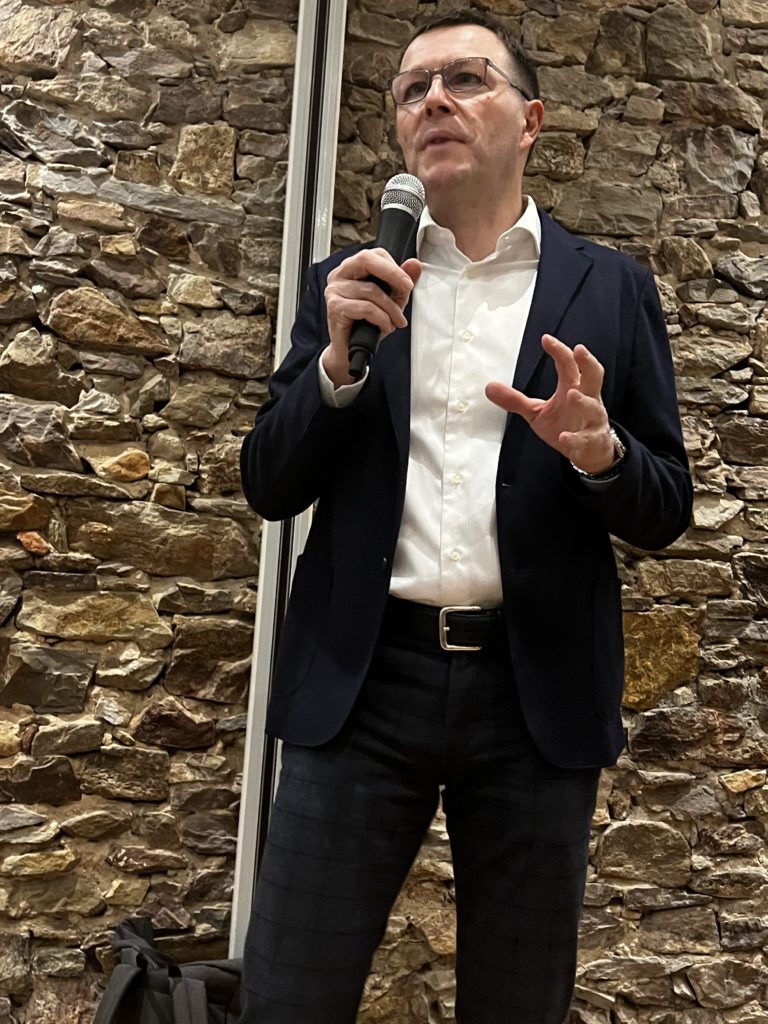Dr. med. Johannes Scholl, one of Germany’s leaders in the field of therapeutic carbohydrate restriction, to present at 2022 Low Carb Boca Conference, January 14-16
Dr. med. Johannes Scholl first discovered his passion for the prevention of disease in 1994, when he found himself working with cancer patients undergoing chemotherapy in his German clinic.
He realized there were steps that could be taken to reduce the risk of diseases, but far too often people failed to take appropriate preventative measures until it was too late.
One day Dr. Scholl came across a seven-part article in the British Medical Journal devoted to cancer prevention and that started him on a journey that continues to this day.
“I started to read everything I could find about prevention,” Dr. Scholl recalled. “I read the British Medical Journal, The Lancet, and the New England Journal—because German journals didn’t write about prevention.”
He started building a database of studies on the subject of prevention, not only of cancer, but of other health risks including cardiovascular disease, and metabolic disease, and his database now includes more than 8,000 studies.
In 2001, Dr. Scholl opened a small 3-person clinic focused on the prevention of disease, starting with one nurse. He is now CEO of Prevention First, a chain of private practices in the sector of occupational health management, offering comprehensive health checkups with lifestyle coaching.
Prevention First now has 15 doctors and more than 20 nurses and will become Germany’s leading chain of preventative medicine clinics when they open their fourth clinic in 2022 in Berlin. The company provides regular preventive medicine check-ups for thousands of employees of German businesses.

2022 Low Carb Boca Conference, January 14-16
Dr. Scholl will draw on his decades of experience working in the area of prevention at the 2022 Low Carb Boca Conference with his presentation entitled “The Importance of Hyperinsulinemia and Diet in a Changing Landscape of Atherosclerosis”.
In his presentation, Dr. Scholl will refine the theory of the initiation of atherosclerosis: with hyperinsulinemia as a driver of smooth muscle cell proliferation, IMT-thickening and neovascularization.
The presentation will differentiate between LDL-cholesterol and non-HDL cholesterol as risk markers, and will address dietary recommendations that can mitigate risk. He will also discuss the history of therapeutic carbohydrate restriction (TCR) in Germany, and will present data from health check-ups from the Prevention First Registry.
“The presentation should be of great interest for anyone counseling patients in nutrition,” said Dr. Scholl, “because what I will present will give them many more arguments as to why low carb is beneficial for preventing cardiovascular disease. The presentation will also provide a different view of what many doctors and cardiologists think would cause atherosclerosis.”
Dr. Scholl says that atherosclerosis and carotid stenosis is not a one-way street. Regression can be accomplished through the lowering of non-HDL cholesterol, but “we never only go for LDL lowering. We go for lowering insulin resistance, lowering triglycerides, it’s always a combination. The best non-pharmaceutical way to lower non-HDL cholesterol is low-carb.”
Dr. Scholl is a Doctor of Internal Medicine, with specializations in Emergency Medicine, Nutritional Medicine, and Sports Medicine. He is also a Master Fitness Specialist (Cooper Institute, Dallas) and has earned a formal qualification in Preventative Medicine.
He has been using low-carb meal plans for patients with insulin resistance or obesity since 2003, contrary to then existing official guidelines in Germany. His clinics have been using very low carb treatments for type 2 diabetes reversal since 2008.
Prevention First is now working with large companies such as Boehringer Ingelheim, one of the world’s leading research-driven pharmaceutical companies, to provide regular testing, education, and counseling services as a way to prevent or reverse cardiovascular disease, diabetes and other health risks.
Employees over 40 years of age receive regular check-ups that include ultrasound of the abdomen, echocardiography, ultrasound of the carotid arteries, and fitness tests. Employees receive low-carb meal plans and an exercise prescription.
In 2005, Dr. Scholl was elected president of the German Academy for Preventative Medicine and he has led the program that teaches 14 postgraduate courses in preventive medicine as part of an 80-hour course of study. The program teaches physicians and cardiologists everything from nutrition and risk factors, to exercise, prescriptions, stress management and cancer prevention.
Dr. Scholl says practitioners should be able to develop a program that works for an Ironman as well as one that is effective for the obese patient who has not been engaged in exercise at all.
“You always have to respect the individual situation of a patient,” he said.
Dr. Scholl says his clinics are able to achieve significantly higher adherence to the lifestyle recommendations by allowing patients to visualize what is actually happening in the atherosclerosis process.
“If they see what’s happening, it has a very good impact on helping them in changing the diet, lowering cholesterol, starting an exercise program, and stopping smoking.”
Although a growing number of companies are buying into Scholl’s vision of preventative medicine, largely because of the benefits in risk reduction it has shown (Scholl says published reports have shown 80% risk reduction in the development of type 2 diabetes for patients with pre-diabetes), the mainstream healthcare system in Germany still has a long way to go.
“We have a health system in Germany, where everybody benefits from disease, and nobody benefits from prevention. So the health system wants to make you a patient and wants to make you stay a patient. So we have disease management programs, but we don’t have any disease reversal programs. And that’s crazy.”
With better preventative medicine programs in place, Scholl says “we could avoid 80% of type two diabetes, 50% of cardiovascular disease, and perhaps 25% of dementia cases.”
If you’re interested in hearing Dr. Scholl’s presentation at the upcoming 2022 Low Carb Boca Conference, be sure to visit the event page.
The conference will be held live and in-person, but virtual options are also available.
In-person tickets include spectacular low-carb dinners on Friday and Saturday night, and provide attendees with additional opportunities to meet and converse with presenters and other attendees.

